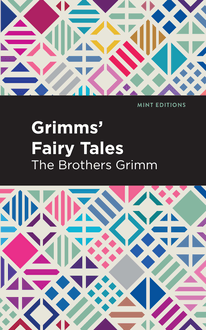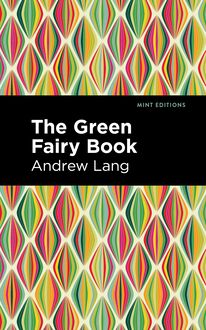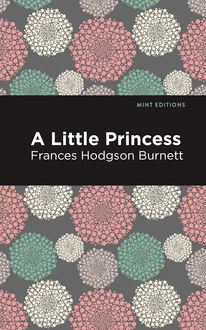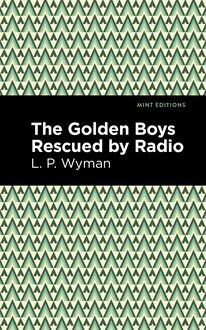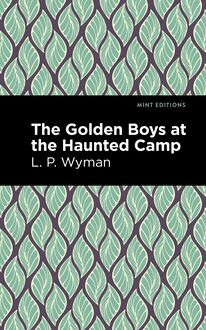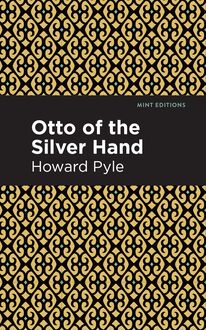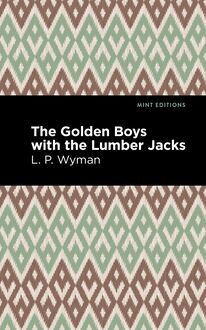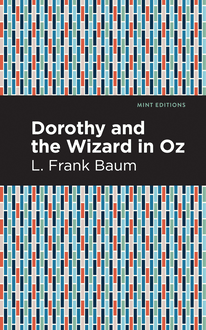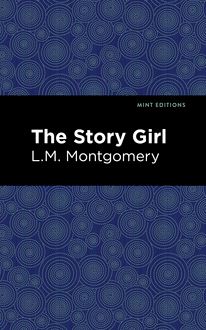-
 Univers
Univers
-
 Ebooks
Ebooks
-
 Livres audio
Livres audio
-
 Presse
Presse
-
 Podcasts
Podcasts
-
 BD
BD
-
 Documents
Documents
-
- Cours
- Révisions
- Ressources pédagogiques
- Sciences de l’éducation
- Manuels scolaires
- Langues
- Travaux de classe
- Annales de BEP
- Etudes supérieures
- Maternelle et primaire
- Fiches de lecture
- Orientation scolaire
- Méthodologie
- Corrigés de devoir
- Annales d’examens et concours
- Annales du bac
- Annales du brevet
- Rapports de stage
La lecture à portée de main
Vous pourrez modifier la taille du texte de cet ouvrage
Découvre YouScribe en t'inscrivant gratuitement
Je m'inscrisDécouvre YouScribe en t'inscrivant gratuitement
Je m'inscrisEn savoir plus
Vous pourrez modifier la taille du texte de cet ouvrage
En savoir plus

Description
Sara Stanley livens up a rural community on Prince Edward Island by sharing her natural gift of storytelling, transporting listeners to another time and place. Like many of L.M. Montgomery’s novels, The Story Girl is loosely inspired by real-life people and events.
When Bev and Felix King encounter Sara Stanley, they are enamored by her ability to captivate both children and adults. While visiting their aunt and uncle’s farm, they spend most of their time listening to Sara’s imaginative tales. She, along with cousins, Dan, Felicity and Cecily, are occupied with extravagant narratives fueled by adventure, romance and the supernatural. It’s a childhood experience the King brothers will never forget.
The Story Girl highlights the youngest members of the King family and their penchant for creativity. Despite their quaint setting, Sara’s fanciful tales breathe new life into their small town. It’s an impressive talent that will bring her notoriety at home and beyond.
With an eye-catching new cover, and professionally typeset manuscript, this edition of The Story Girl is both modern and readable.
Sujets
Informations
| Publié par | Mint Editions |
| Date de parution | 01 décembre 2020 |
| Nombre de lectures | 0 |
| EAN13 | 9781513273440 |
| Langue | English |
| Poids de l'ouvrage | 3 Mo |
Informations légales : prix de location à la page 0,0500€. Cette information est donnée uniquement à titre indicatif conformément à la législation en vigueur.
Extrait
The Story Girl
L.M. Montgomery
The Story Girl was first published in 1911.
This edition published by Mint Editions 2020.
ISBN 9781513268446 | E-ISBN 9781513273440
Published by Mint Editions®
minteditionbooks.com
Publishing Director: Jennifer Newens
Design & Production: Rachel Lopez Metzger
Typesetting: Westchester Publishing Services
C ONTENTS 1. T HE H OME OF O UR F ATHERS 2. A Q UEEN OF H EARTS 3. L EGENDS OF THE O LD O RCHARD 4. T HE W EDDING V EIL OF THE P ROUD P RINCESS 5. P ETER G OES TO C HURCH 6. T HE M YSTERY OF G OLDEN M ILESTONE 7. H OW B ETTY S HERMAN W ON A H USBAND 8. A T RAGEDY OF C HILDHOOD 9. M AGIC S EED 10. A D AUGHTER OF E VE 11. T HE S TORY G IRL D OES P ENANCE 12. T HE B LUE C HEST OF R ACHEL W ARD 13. A N O LD P ROVERB W ITH A N EW M EANING 14. F ORBIDDEN F RUIT 15. A D ISOBEDIENT B ROTHER 16. T HE G HOSTLY B ELL 17. T HE P ROOF OF THE P UDDING 18. H OW K ISSING W AS D ISCOVERED 19. A D READ P ROPHECY 20. T HE J UDGMENT S UNDAY 21. D REAMERS OF D REAMS 22. T HE D REAM B OOKS 23. S UCH S TUFF AS D REAMS A RE M ADE O N 24. T HE B EWITCHMENT OF P AT 25. A C UP OF F AILURE 26. P ETER M AKES AN I MPRESSION 27. T HE O RDEAL OF B ITTER A PPLES 28. T HE T ALE OF THE R AINBOW B RIDGE 29. T HE S HADOW F EARED OF M AN 30. A C OMPOUND L ETTER 31. O N THE E DGE OF L IGHT AND D ARK 32. T HE O PENING OF THE B LUE C HEST
Chapter 1
T HE H OME OF O UR F ATHERS
“I do like a road, because you can be always wondering what is at the end of it.”
The Story Girl said that once upon a time. Felix and I, on the May morning when we left Toronto for Prince Edward Island, had not then heard her say it, and, indeed, were but barely aware of the existence of such a person as the Story Girl. We did not know her at all under that name. We knew only that a cousin, Sara Stanley, whose mother, our Aunt Felicity, was dead, was living down on the Island with Uncle Roger and Aunt Olivia King, on a farm adjoining the old King homestead in Carlisle. We supposed we should get acquainted with her when we reached there, and we had an idea, from Aunt Olivia’s letters to father, that she would be quite a jolly creature. Further than that we did not think about her. We were more interested in Felicity and Cecily and Dan, who lived on the homestead and would therefore be our roofmates for a season.
But the spirit of the Story Girl’s yet unuttered remark was thrilling in our hearts that morning, as the train pulled out of Toronto. We were faring forth on a long road; and, though we had some idea what would be at the end of it, there was enough glamour of the unknown about it to lend a wonderful charm to our speculations concerning it.
We were delighted at the thought of seeing father’s old home, and living among the haunts of his boyhood. He had talked so much to us about it, and described its scenes so often and so minutely, that he had inspired us with some of his own deep-seated affection for it—an affection that had never waned in all his years of exile. We had a vague feeling that we, somehow, belonged there, in that cradle of our family, though we had never seen it. We had always looked forward eagerly to the promised day when father would take us “down home,” to the old house with the spruces behind it and the famous “King orchard” before it—when we might ramble in “Uncle Stephen’s Walk,” drink from the deep well with the Chinese roof over it, stand on “the Pulpit Stone,” and eat apples from our “birthday trees.”
The time had come sooner than we had dared to hope; but father could not take us after all. His firm asked him to go to Rio de Janeiro that spring to take charge of their new branch there. It was too good a chance to lose, for father was a poor man and it meant promotion and increase of salary; but it also meant the temporary breaking up of our home. Our mother had died before either of us was old enough to remember her; father could not take us to Rio de Janeiro. In the end he decided to send us to Uncle Alec and Aunt Janet down on the homestead; and our housekeeper, who belonged to the Island and was now returning to it, took charge of us on the journey. I fear she had an anxious trip of it, poor woman! She was constantly in a quite justifiable terror lest we should be lost or killed; she must have felt great relief when she reached Charlottetown and handed us over to the keeping of Uncle Alec. Indeed, she said as much.
“The fat one isn’t so bad. He isn’t so quick to move and get out of your sight while you’re winking as the thin one. But the only safe way to travel with those young ones would be to have ’em both tied to you with a short rope—a mighty short rope.”
“The fat one” was Felix, who was very sensitive about his plumpness. He was always taking exercises to make him thin, with the dismal result that he became fatter all the time. He vowed that he didn’t care; but he did care terribly, and he glowered at Mrs. MacLaren in a most undutiful fashion. He had never liked her since the day she had told him he would soon be as broad as he was long.
For my own part, I was rather sorry to see her going; and she cried over us and wished us well; but we had forgotten all about her by the time we reached the open country, driving along, one on either side of Uncle Alec, whom we loved from the moment we saw him. He was a small man, with thin, delicate features, close-clipped gray beard, and large, tired, blue eyes—father’s eyes over again. We knew that Uncle Alec was fond of children and was heart-glad to welcome “Alan’s boys.” We felt at home with him, and were not afraid to ask him questions on any subject that came uppermost in our minds. We became very good friends with him on that twenty-four mile drive.
Much to our disappointment it was dark when we reached Carlisle—too dark to see anything very distinctly, as we drove up the lane of the old King homestead on the hill. Behind us a young moon was hanging over southwestern meadows of spring-time peace, but all about us were the soft, moist shadows of a May night. We peered eagerly through the gloom.
“There’s the big willow, Bev,” whispered Felix excitedly, as we turned in at the gate.
There it was, in truth—the tree Grandfather King had planted when he returned one evening from ploughing in the brook field and stuck the willow switch he had used all day in the soft soil by the gate.
It had taken root and grown; our father and our uncles and aunts had played in its shadow; and now it was a massive thing, with a huge girth of trunk and great spreading boughs, each of them as large as a tree in itself.
“I’m going to climb it to-morrow,” I said joyfully.
Off to the right was a dim, branching place which we knew was the orchard; and on our left, among sibilant spruces and firs, was the old, whitewashed house—from which presently a light gleamed through an open door, and Aunt Janet, a big, bustling, sonsy woman, with full-blown peony cheeks, came to welcome us.
Soon after we were at supper in the kitchen, with its low, dark, raftered ceiling from which substantial hams and flitches of bacon were hanging. Everything was just as father had described it. We felt that we had come home, leaving exile behind us.
Felicity, Cecily, and Dan were sitting opposite us, staring at us when they thought we would be too busy eating to see them. We tried to stare at them when they were eating; and as a result we were always catching each other at it and feeling cheap and embarrassed.
Dan was the oldest; he was my age—thirteen. He was a lean, freckled fellow with rather long, lank, brown hair and the shapely King nose. We recognized it at once. His mouth was his own, however, for it was like to no mouth on either the King or the Ward side; and nobody would have been anxious to claim it, for it was an undeniably ugly one—long and narrow and twisted. But it could grin in friendly fashion, and both Felix and I felt that we were going to like Dan.
Felicity was twelve. She had been called after Aunt Felicity, who was the twin sister of Uncle Felix. Aunt Felicity and Uncle Felix, as father had often told us, had died on the same day, far apart, and were buried side by side in the old Carlisle graveyard.
We had known from Aunt Olivia’s letters, that Felicity was the beauty of the connection, and we had been curious to see her on that account. She fully justified our expectations. She was plump and dimpled, with big, dark-blue, heavy-lidded eyes, soft, feathery, golden curls, and a pink and white skin—“the King complexion.” The Kings were noted for their noses and complexion. Felicity had also delightful hands and wrists. At every turn of them a dimple showed itself. It was a pleasure to wonder what her elbows must be like.
She was very nicely dressed in a pink print and a frilled muslin apron; and we understood, from something Dan said, that she had “dressed up” in honour of our coming. This made us feel quite important. So far as we knew, no feminine creatures had ever gone to the pains of dressing up on our account before.
Cecily, who was eleven, was pretty also—or would have been had Felicity not been there. Felicity rather took the colour from other girls. Cecily looked pale and thin beside her; but she had dainty little features, smooth brown hair of satin sheen, and mild brown eyes, with just a hint of demureness in them now and again. We remembered that Aunt Olivia had written to father that Cecily was a true Ward—she had no sense of humour. We did not know what this meant, but we thought it was not exactly complimentary.
Still, we were both inclined to think we would like Cecily better than Felicity. To be sure, Felicity was a stunning beauty. But, with the swift and unerring intuition of childhood, which feels in a moment what it sometimes takes maturity much time to perceive, we realized that she was rather too well aware of her good looks. In brief,
-
 Univers
Univers
-
 Ebooks
Ebooks
-
 Livres audio
Livres audio
-
 Presse
Presse
-
 Podcasts
Podcasts
-
 BD
BD
-
 Documents
Documents
-
Jeunesse
-
Littérature
-
Ressources professionnelles
-
Santé et bien-être
-
Savoirs
-
Education
-
Loisirs et hobbies
-
Art, musique et cinéma
-
Actualité et débat de société
-
Jeunesse
-
Littérature
-
Ressources professionnelles
-
Santé et bien-être
-
Savoirs
-
Education
-
Loisirs et hobbies
-
Art, musique et cinéma
-
Actualité et débat de société
-
Actualités
-
Lifestyle
-
Presse jeunesse
-
Presse professionnelle
-
Pratique
-
Presse sportive
-
Presse internationale
-
Culture & Médias
-
Action et Aventures
-
Science-fiction et Fantasy
-
Société
-
Jeunesse
-
Littérature
-
Ressources professionnelles
-
Santé et bien-être
-
Savoirs
-
Education
-
Loisirs et hobbies
-
Art, musique et cinéma
-
Actualité et débat de société
- Cours
- Révisions
- Ressources pédagogiques
- Sciences de l’éducation
- Manuels scolaires
- Langues
- Travaux de classe
- Annales de BEP
- Etudes supérieures
- Maternelle et primaire
- Fiches de lecture
- Orientation scolaire
- Méthodologie
- Corrigés de devoir
- Annales d’examens et concours
- Annales du bac
- Annales du brevet
- Rapports de stage
